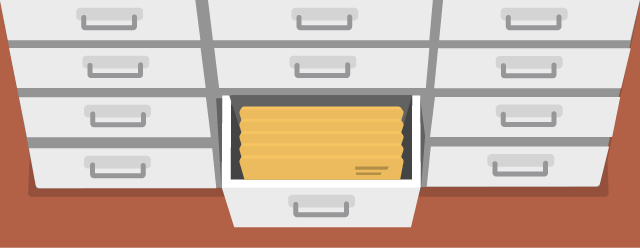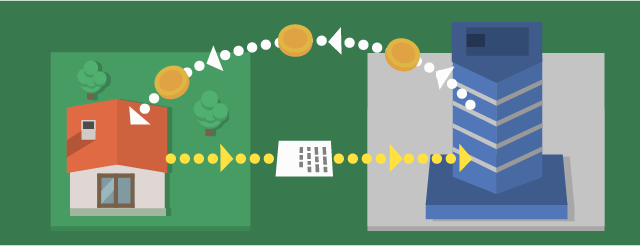8 Types of Blogs and Bloggers. What Type is Yours?

In the blogging world, there are different kinds of blogs and bloggers who blog to reach specific goals. If you decided to start a blog, but you’re not sure what your blog is going to tackle, then identifying the type of blogger you want to become can help. In this post, we’re going to look at the types of blogs and bloggers that exist and how each strives to become successful in the blogging world.
1. Personal Blogs

When blogging began in the late ’90s, the first type of blogger that appeared was the online diary bloggers. These were people who wanted to take their daily journal online to share their experiences, feelings, and innermost thoughts with an audience. For the personal blogger, there were no rules to follow or themes to adhere to. Their blogs were the open pages of their diaries, entered through a word processor, and published on simple HTML pages.
Personal bloggers today tend to follow the same trajectory, although they no longer have to fight the barrier to entry of setting up a website. They can use WordPress, Blogger, Tumblr, HubSpot, and similar networks to start a blog in less than fifteen minutes and start sharing their brilliance with the world.
So what does a personal blogger write about? Everything. Some will focus on a particular interest, such as a hobby. Some will focus on something they are passionate about, like politics. Some will focus on a cause, like their struggle with cancer. Some will focus on whatever is on their mind at the time they start a new blog post.
Successful personal blog
The success of a personal blogger is finding others to share their writing. The best way to build a community for a personal blog is to find other personal bloggers who share the same interest. Once you have found them, start commenting on their blogs and connecting with them on social media. As you grow your interactions with other personal bloggers, they will begin to engage with your blog posts.
Example of a good personal blog:
- Gregory Ciotti writes about clear communication, collaboration, and creative work.
2. Business Blogs

Business bloggers are those who blog for their business. That could be a business they own or the company they work for. The business blogger’s goal is to gain more exposure, traffic, and ultimately customers for their business. Unlike personal bloggers, their writing is less focused on themselves and more focused on their business and their industry.
A business blogger will write about the topics that will attract their ideal customers. For example, employees of a printing company will write blog content that is aimed towards other business owners who are in the market for business cards, flyers, brochures, and other printing services. The blog posts will cover topics like “How to Design a Great Business Card,” ‘Typography 101,” and “Creating a Brochure That Boosts Your Business.”
Successful business blog
The success of a business blogger is to attract readers that will ultimately subscribe to their email list, submit a lead form, or make a purchase. The best way to build a community for a business blog is to identify people who are most likely to become customers of your business and create content that they would find interesting. Then make sure each piece of content leads these people to want to learn more about your products and services.
Example of a good business blog:
- HelpScout blog with everything you need to know about customer loyalty.
3. Professional Blogs

Professional bloggers are those who blog to make money online. In other words, their career goal is to earn a salary through their blogging efforts. Professional bloggers tend to use a variety of monetization strategies to achieve this goal, including selling display ads, creating information and digital products, promoting other people’s products for a commission, and similar.
Professional bloggers tend to either focus on one blog or many niche blogs to generate revenue. Each blog would need to have the potential for attracting a large audience, producing lots of traffic, and being a good fit for advertisers and product sales.
Successful professional blog
The success of a professional blogger depends on their monetization goals. Those who wish to make money through advertising will need a lot of traffic from an audience interested in a particular topic. For example, a popular personal finance blog would likely attract an audience that advertisers from retirement savings companies, banks, and similar businesses would want to get in front. In addition to advertising, the personal finance blogger could also monetize by creating their course on personal finance or become an affiliate for others who have courses on personal finance.
Example of a good pro blog:
- 4-Hour Workweek and Lifestyle Design Blog from Tim Ferriss.
4. Niche blogs

Instead of merely focusing on broad topics, niche blogs are very specific! Some of the niche blog ideas might be food blogging, training programs with your own weight, poem writing, as well as French bulldog lovers. Yes, it can be that specific!
With a niche blog, you can focus more on a particular topic thus making research rather easy. It’s easier to identify the strengths and weaknesses of that niche and write about things you know the best. You can also use that blog and change your passion into a small personal business.
Successful niche blog
It’s important to pick the topic that appeals to you and the one you are passionate about. Aspire for success, happiness, security, and recognition. By choosing your niche of interest and having your point of view you’ll be able to position and differentiate your blog from other niche blogs. On the other hand, it’s also important to identify the size of the niche. Even if you believe you have a brilliant blog idea, it would be challenging to succeed unless your niche market attracts enough people. You don’t want your niche to be too small or too big.
Example of a good niche blog:
- Jamie Oliver’s blog with interesting food recipes and cooking ideas.
Some popular niche blogs:
Lifestyle blog
Although a strictly defined niche, a lifestyle blog allows you to address dozens of topics. This is a really efficient way of amassing a follower base and increasing traffic in a short time.
Home decor blog
People love learning about all those little projects they can undertake on their own in their homes. This is why DIY home decor blogs became very popular. The topics they cover a range from wall decorations to custom-made light fixtures.
Health blog
Blogging about health has become immensely popular lately. The competition in this niche is very tough, but it doesn’t mean that you won’t be able to succeed. There’s a lot of room for valuable information, advice, tips, and support.
Parenting blog
Parenting is a very popular niche that is also suitable for novice bloggers. There are so many topics to cover, and in the long term, monetization is also not a problem, since there are dozens of products designed for parents and kids.
Sewing blog
Who would have thought that there is a huge audience out there waiting for the content about knitting and sewing, right? Craft blogging has become a huge thing and the sewing niche is a very popular one.
Religious blog
Religious blogs are also very popular. This is where people can find words of wisdom and connect on a meaningful level. There are many religious blogs out there.
5. Reverse blogs

Reverse or guest host blogs are a unique but modern type of blog. Instead of the owner creating content, the content is supplied by the public. A reverse blog has a team that moderates posts, prevent unpleasant interactions, and promotes slow topics for greater interactivity. Despite the fact that the guest host blog mostly contains content from guest writers, the owner should also write posts of his or her own. Keep in mind that different types of bloggers share different ideas when it comes to blogging.
In fact, any blogger should look for blogs in their field where he or she can become a guest blogger. It would help you attracts visitors to your blog, and some online readers of the host blog can become your followers.
Successful reverse blog
The trick here would be how do you attract different writers who already have a reputation online and in most cases, they would help you promote your blog by sharing pieces of content that they’ve posted with their audiences, usually on social media. From your end, you will have to have a good moderation plan in place so that you can display content from the guests daily.
Example of a good reverse blog:
- Medium is a quirky reverse blog with a growing following.
6. Affiliate Blogs

Affiliate bloggers are those that blog to generate affiliate marketing commissions. Instead of creating their own products, they write blog posts that review products by others. The goal is to encourage visitors to purchase those products using the blogger’s affiliate link, allowing the blogger to earn a commission as specified by the product creator.
An affiliate blogger typically writes review posts on affiliate products. Some will write many reviews on one website, while others will create websites dedicated to promoting one particular affiliate product. SEO is an important part of the process, as an affiliate blogger needs their reviews to rank first in search results.
Successful affiliate blog
Success for an affiliate blogger is ensuring that their affiliate product reviews read by those who are likely to purchase those products. They also work towards building an extensive mailing list to promote affiliate product launches with dedicated subscribers. Some affiliate marketers will tell you that their email list is the primary source of their revenue.
Example of a successful affiliate blog:
- Shoemoney blog by Jeremy Shoemaker.
7. Media blogs

Media blogs are defined by the content they produce. If you enjoy video blogging, then you’re a vlogger. If you curate content from other websites, you have a linklog. If you post photos or art sketches on your blog, you’re hosting a photoblog or art blog.
This type of blog is popular among people in different fields. The younger crowd is recording their video gameplay and sharing it with people interested in that game. Photographers can share tons of pictures they took on the last trip. People that have a podcast can post audio files of the last episode recorded.
Successful media blog
One of the important factors here would be choosing the blogging platform that would suit your needs. And maybe finding the web hosting provider that would allow you to store bigger size files without charging you a fortune.
Example of a successful media blog:
- PostSecret blog where people mail in their secrets anonymously on a postcard.
8. Freelance bloggers

Freelance bloggers are those who are paid for providing services, for example writing content for other businesses. If you are looking for a way to get paid for writing as a service and have experience in blogging, freelance blogging is the way to go.
Freelance bloggers cover topics provided by their clients. Some market themselves as experts in a particular industry or niche, while others market themselves as general writers who can cover anything with a bit of research. Experts within a particular industry or niche tend to be able to charge more than general writers.
Successful freelance blogger
Success for a freelance blogger is to build a portfolio that makes them attractive to entrepreneurs and businesses who need quality content written for their company blog. With the exception of ghostwriters, freelance bloggers can use their work for other clients as a springboard to gain new customers. As they become more in demand, freelance bloggers can get bigger contracts and earn a living as a freelancer.
Example of a successful freelance blogger:
- Jean runs Catswhocode blog and offers web development services.
Ready to start your own blog?
Creating your own personal blog can be done so quickly. When you choose a name for your blog and a blogging platform you will need to choose a web hosting provider. For all new bloggers, we recommend Bluehost, a company that powers over 2 million websites worldwide. You will get a free domain name when you sign up with them and if you don’t like their services, they offer a 30-day money-back guarantee.
Recommended tool:
Once you launch your new blog, you need to future-proof it in order to ensure there will not be any big roadblocks in your way. Your vision needs to be long term. Whatever you do today will impact your online presence in the future.
Conclusion
These are the major types of blogs but there are a lot more to discover. There are also community blogs, nonprofit blogs, live webcam blogs, live game screencast blogs, device type blogs, podcast blogs, various video blogs, and mixes of all types. Hopefully, you should be able to choose your type and start your own blog to begin your blogging journey.

[…] I don’t believe that there are types of blogs I only of categories of blogs. Anything that you do or like has way it fall into in blog categories but you can read this post on details list of all the type of blog. […]
[…] If you’re not sure what you can blog about, there so many ideas and types. (You can check out this article to read all the […]
[…] absolutely be included on their resume. Before I get ahead of myself, let’s talk about the types of blogs there […]
[…] about me. Here is a website you can look at that describes the different types of Youtube channels Blogging Types. If you are eager just as I was about starting a channel, look at this website to start your […]